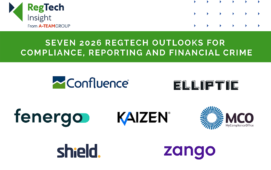
BXS, a New York-based compliance reporting and analytics solutions provider, has launched a new Rule 606 Consolidator tool. Available to all existing BXS customers, the new add-on provides a comprehensive view of brokers’ public Rule 606 report filings, allowing market centers to analyze how their clients and prospects are routing order flow and how their competitors are interacting with these entities.
Regulatory reporting updates have become a hot topic in the US in recent years, as new routing venues and algo providers proliferate. The recently-revised Rule 606 from the US Securities and Exchange Commission (SEC) requires broker-dealers that route customer orders in equities and option securities to publish quarterly reports that provide a general overview of their routing practices, as well as disclosing to customers (on request) the venues to which their individual orders were routed.
With its new tool, BXS scrapes the internet to bring public Rule 606 reports into a single location, cleaning them up and locating them within a standardized database. Users can filter the reports by broker-dealer or destination, allowing them to more easily derive competitive insights around how clients make their order routing decisions, how their competitors win order flow and more. The platform includes all information captured in public Rule 606 reports, including payment-for-order-flow disclosures, fee and rebate statistics and other critical data points.
Commenting on the launch, Michael Post, Executive Vice President at BXS, says: “Competition for order flow is as fierce as it’s ever been, so it is crucial that ATSs and wholesalers are able to understand and analyze how brokers are interacting with the markets. While the enhanced Rule 606 reporting requirements introduced last May resulted in much discussion within the industry focused on the burden of the new requirements, our new product is a great example of how, with the right tools, market participants can go beyond simple compliance reporting and use new regulatory mandates to their advantage.”
The product can also be used to comply with FINRA Rule 5310, which states that members must compare the quality of the executions they are obtaining to that of competing markets.
Subscribe to our newsletter




